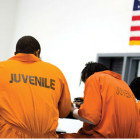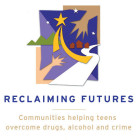
DOJ, State Officials Agree to Overhaul of Memphis-area Juvenile Justice System
|
On Monday, the United States Department of Justice (DOJ) and officials in Memphis, Tenn. entered into an agreement to overhaul the juvenile justice system within Shelby County, long plagued by reports of detainee mistreatment and systemic oversights. An investigative report released by the DOJ’s Civil Rights Division earlier this year found numerous due process violations within the Juvenile Court of Memphis and Shelby County (JCMSC), with officials unable to provide timely probable cause hearings or required transfer hearings for young detainees. The report also found that JCMSC personnel were holding young people in restraints for much longer than allowed under its own policy, with some detainees held in restraint chairs for five times the facility’s “maximum” duration of 20 minutes. The memorandum of agreement (MOA) signed by the DOJ and JCMSC will revise the county’s current juvenile justice policies, with JCMSC officials agreeing to adhere to constitutionally backed due process and equal protection protocols.








